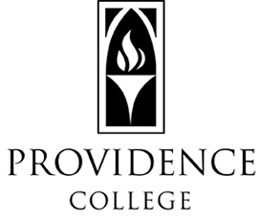Biographical note
William Henry Chamberlin was a prolific American historian and journalist. Influenced by his experiences abroad during the 1930s, Chamberlin became a staunch conservative and strong proponent of individual liberty. Despite these political leanings, Chamberlin’s works are described as impartial and keenly insightful. Chamberlin’s scholarly approach and passionate style has led him to be considered a legitimate authority on critical issues from the mid twentieth century.
William H. Chamberlin was born in Brooklyn, New York, on February 17, 1897. He attended the William Penn Charter School before entering Haverford College for undergraduate studies. A recipient of several awards in recognition of his academic achievements, classmates attest to his intelligence and passion for Latin, Greek, Russian, history, and literature. In addition, Chamberlin was an active contributor to the college newspaper, the Haverfordian.
Upon graduation, Chamberlin secured a position on the staff of The Philadelphia Press. At age twenty-five, Chamberlin moved to Greenwich Village, New York, where he worked for Heywood Broun, a book editor of the New York Tribune. In Greenwich Village, Chamberlin was surrounded by pro-Bolsheviks and likewise adopted these sentiments. Writing under the pseudonym A.C Freeman, his pieces support socialism and the Communist regime in the USSR. It was at this time that he married his wife, Sonya Trotsen, a Russian-born immigrant. They would have one daughter, Elizabeth Chamberlin.
In 1922, Chamberlin took a position with the Christian Science Monitor as their Moscow correspondent, a position he would hold for twelve years in addition to working for the Manchester Guardian. Chamberlin’s first book, Soviet Russia (1930), maintains his initial support of Bolshevism but also provides the first glimpse of disillusionment with this ideology. He increasingly became disenchanted with Soviet censorship, suppression, and terrorism. When Chamberlin and Sonya witnessed the devastation of the 1932-1933 famine in the Ukraine and Northern Caucuses, he completely denounced communism.
As a foreign correspondent in Germany, Japan and France, Chamberlin’s opposition towards any form of absolutism and collectivism solidified. Upon returning to the United States in 1939, Chamberlin worked as a free-lance journalist, contributing to The New Leader, The Wall Street Journal, and the Russian Review. His pieces espouse a deep commitment to personal liberty, faith in human reason and freedom, and political conservatism. Chamberlin also continued his career as an author, eventually writing eighteen books, which focus mainly on Soviet history.
Chamberlin additionally served as The Wall Street Journal political and economic commentator. He disagreed with American involvement in World War II and continued to contest U. S. policies of intervention and appeasement after the war, especially in regards to communist countries.
Aside from writing, Chamberlin was a great enthusiast of classical music, baseball and football. He was also a member of the John Birch Society, an organization which shared many of his more conservative stands. Furthermore, Chamberlin was especially devoted to his wife Sonya, who often assisted him in research and supported his literary career. Devastated by Sonya’s death in 1969, he only survived her by nine months. Suffering from a stroke during a trip to St. Moritz, Switzerland, William Henry Chamberlin died on September 12, 1969.
Chronology
| Date | Event | |
|---|---|---|
| 1897 Feb 17 | William Henry Chamberlin is born in Brooklyn, New York Mother - May McClintock Chamberlin; Father - Ernest Champberlin | |
| 1913-1917 | Attends Haverford College | |
| 1918 | Employed by The Philadelphia Press | |
| 1922 | Moves to Greenwich Village, New York and works for New York Tribune book editor, Heywood Broun | |
| 1922 | Marries Sonya Trotsen (Russian Born); One daughter - Elizabeth | |
| 1922-1934 | Employed as the Moscow news correspondent for the Christian Science Monitor and Manchester Guardian | |
| 1930 | Writes first book, Soviet Russia | |
| 1932-1933 | Travels to Ukraine and Northern Caucuses and witnesses famine, causes final break in support for communism | |
| 1935 | Writes The History of the Russian Revolution: 1917-1921 | |
| 1934-1939 | Works as a foreign correspondent in Germany, Japan and France | |
| 1939 | Flees France after Nazis takeover, returns to the United States and begins a careers as a freelance journalist for The Wall Street Journal, The New Leader, and the Russian Review | |
| 1946 | Begins extensive study of post-WWII Europe as a foreign correspondent | |
| 1953 | Assumes position as the political and economic commentator for The Wall Street Journal | |
| 1963 | Publishes last work, The German Phoenix | |
| 1969 | Sonya (Trotsen) Chamberlin passes away | |
| 1969 Sep 12 | William Henry Chamberlin dies from a stroke near St. Moritz, Switzerland |


